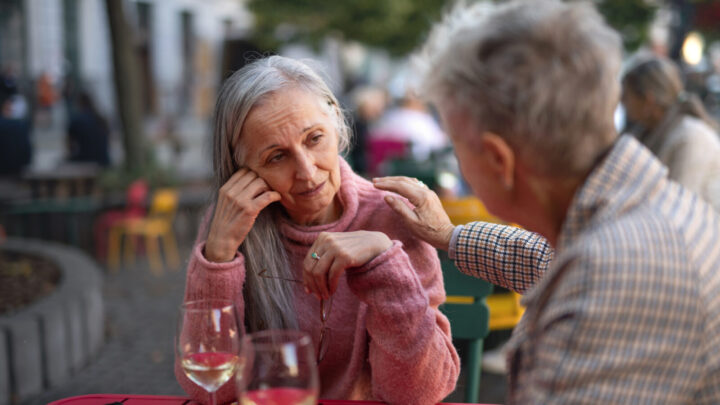
The impact of grief on our health has long fascinated and saddened us. Stories of long-married couples passing away shortly after one another raises questions about the connection between grief, illness, and mortality.
Now, research conducted by Cornell University’s Department of Sociology has shed further light on the relationship between grief and mortality, particularly looking at older widows and their social groups.
The study, led by Professor Benjamin Cornwell and doctoral student Tianyao Qu, examined the social networks of over 1,200 participants aged 57 to 85, with the goal of finding out if the way partners are socially interconnected influences the “broken heart syndrome” or “widowhood effect”–the tendency for married people to die in close succession.
Over a 10-year study period, the researchers found that widows and widowers whose friends were not closely connected to their partners faced a significantly higher probability of death.
In fact, the risk of death was five times greater for those whose friends were not close to their spouse.
The study suggests that when spouses have separate friendship circles, the grieving process can be more stressful, and the surviving spouse may lose access to valuable social resources that can’t be easily replaced.
“If you’ve lost a partner who essentially served as your bridge to another social world, then you’ve lost something very special,” Cornwell said.
“You’ve lost access to a social world, not just to your spouse.”
The study indicated that widowed participants who didn’t have their spouse’s friends in their social network had a 28 per cent chance of death within the next 10 years, compared to only 5 per cent for those whose spouses maintained regular communication with their friends.
The researchers believe that more research is needed to understand the widowhood effect better and find ways to help those affected. However, they propose a potential solution, building relationships with a partner’s close friends or family before experiencing the loss.
By doing so, it may be possible to reduce the stressors associated with having a broken heart.
In the past, research published in the Psychotherapy and Psychosomatics Journal claimed taking two aspirin pills following the death of a loved one can decrease the chance of experiencing heart complications associated with grief.
The risk of a heart attack can increase 21.1-fold in the 24 hours following the passing of a loved one, although aspirin can lower the risk factors linked with heart attack and help people recover physically from loss quicker.
This study found bereavement can increase blood pressure and cause the heart rate to rise rapidly, while blood vessels can become restricted and cholesterol plaque can build up in the blood.
If you or someone you love experiences aching in the chest during stressful situations, it is recommended you talk to your GP or health professional about ways you may be able to better reduce stress and potentially reduce the risk of suffering broken heart syndrome.